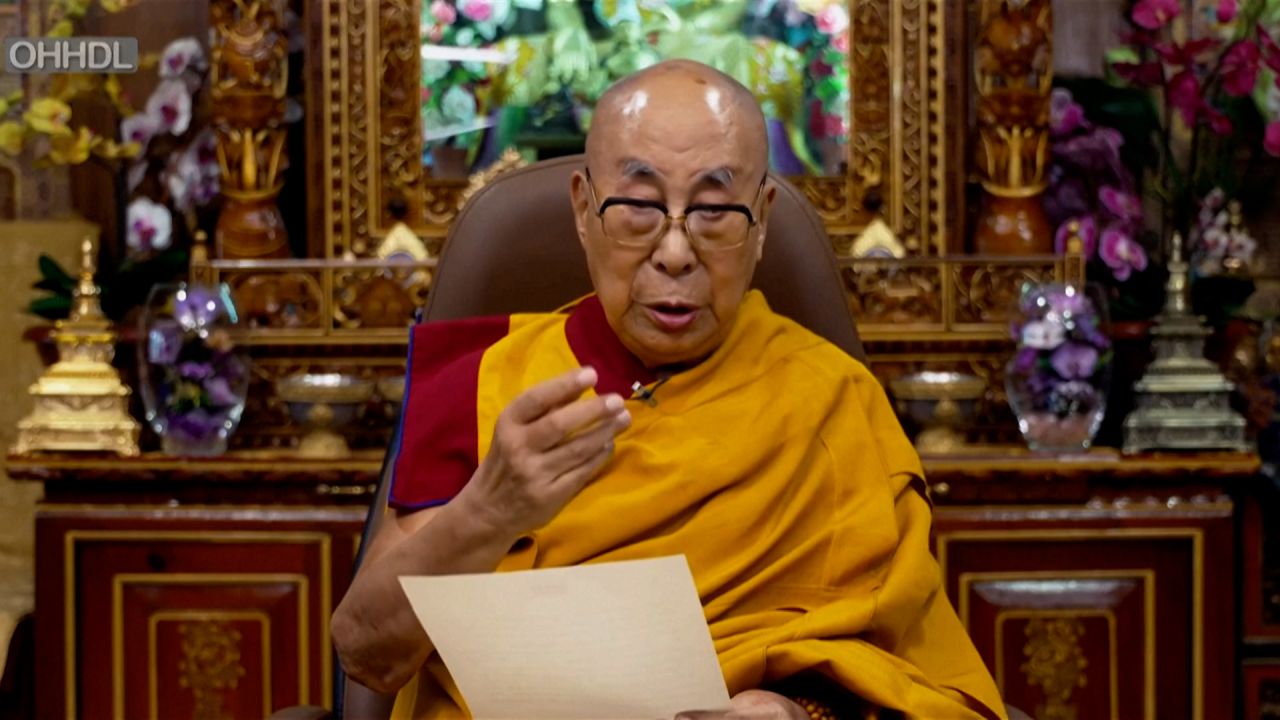Articles in this Cluster
02-07-2025
The Dalai Lama announced he will reincarnate and that the institution of the Dalai Lama will continue, with his Gaden Phodrang Trust holding sole authority to recognize his successor according to tradition. The move, made just before his 90th birthday, sets up a likely showdown with China, which insists it must approve the next Dalai Lama under Chinese law. In his recent memoir, he says his successor will be born outside China and urges rejection of any Beijing-appointed candidate, raising the prospect of rival dalai lamas. Tibetan leaders condemned China’s use of reincarnation for political aims, while experts say Beijing has long prepared to influence the succession, as seen in the disputed Panchen Lama case.
Entities: Dalai Lama, Gaden Phodrang Trust, China, Beijing, Tibetan Buddhism • Tone: analytical • Sentiment: neutral • Intent: inform
02-07-2025
As the Dalai Lama turns 90, he plans to outline how his successor will be chosen, potentially departing from tradition to thwart Chinese control. Historically, the next Dalai Lama is identified after the incumbent’s death through spiritual signs and tests, a process that can take years. The Dalai Lama has suggested the next leader could be born in a free country, be an adult, and not necessarily male—and has even questioned whether the institution should continue. China insists only the Communist Party can approve the reincarnation, using mechanisms like the Qing-era “golden urn” and citing its precedent with the Panchen Lama, where Beijing replaced the Dalai Lama’s chosen child with its own appointee. The succession struggle is central to China’s effort to diminish the Dalai Lama’s influence inside Tibet and shape Tibetan Buddhism’s future.
Entities: Dalai Lama, Tibet, Chinese Communist Party, New York Times, golden urn • Tone: analytical • Sentiment: neutral • Intent: inform
02-07-2025
The Dalai Lama convened senior monks in Dharamsala to outline succession plans aimed at preventing Chinese interference in selecting his reincarnation. In a video statement, he asserted that only his office has the authority to recognize his successor, countering Beijing’s attempts to control Tibetan religious institutions. He reiterated openness to a successor born in a free country—likely among the Tibetan exile community—and to possibilities that break tradition, including an adult or a female Dalai Lama. The moves, timed around his 90th birthday, reflect long-standing concerns that China could exploit the posthumous transition to weaken the Tibetan autonomy movement.
Entities: Dalai Lama, China, Beijing, Dharamsala, Tibetan exile community • Tone: analytical • Sentiment: neutral • Intent: inform
02-07-2025
The Dalai Lama, ahead of his 90th birthday, announced that the Dalai Lama institution will continue after his death and that his Gaden Phodrang Trust—not Beijing—will oversee the search for his reincarnation, following Tibetan tradition. He said he will leave written instructions and has previously suggested the next Dalai Lama could be born in a free country, possibly outside Tibet, and may be an adult or not male. China immediately rejected his statement, insisting that reincarnations must be selected via the Qing-era “golden urn” process and approved by the Communist party, reflecting a broader struggle over control of Tibetan Buddhism. The dispute has international ramifications, with the U.S. threatening sanctions for interference and the EU voicing support for religious freedom.
Entities: Dalai Lama, Gaden Phodrang Trust, Chinese Communist Party, golden urn process, Tibetan Buddhism • Tone: analytical • Sentiment: neutral • Intent: inform
